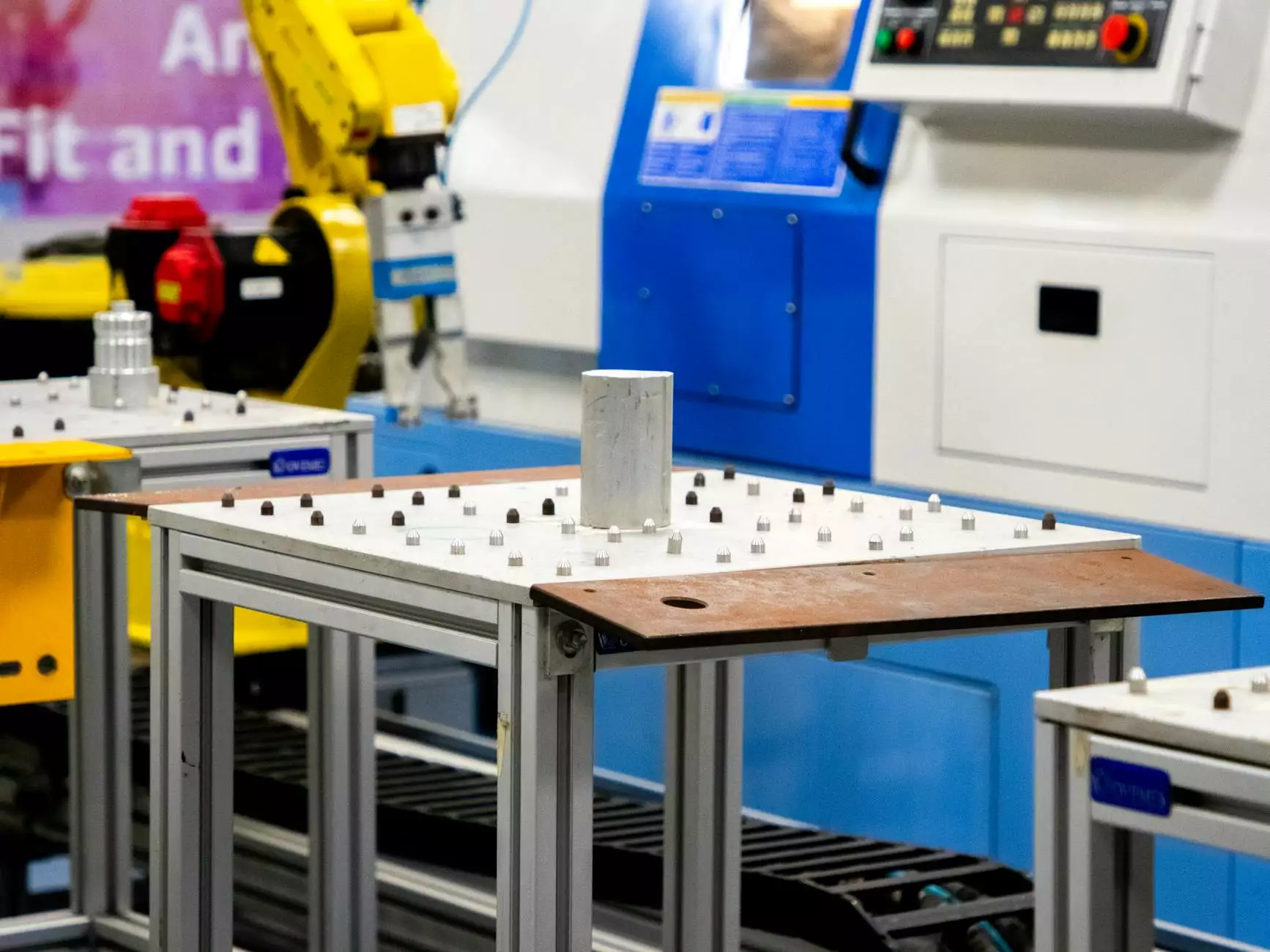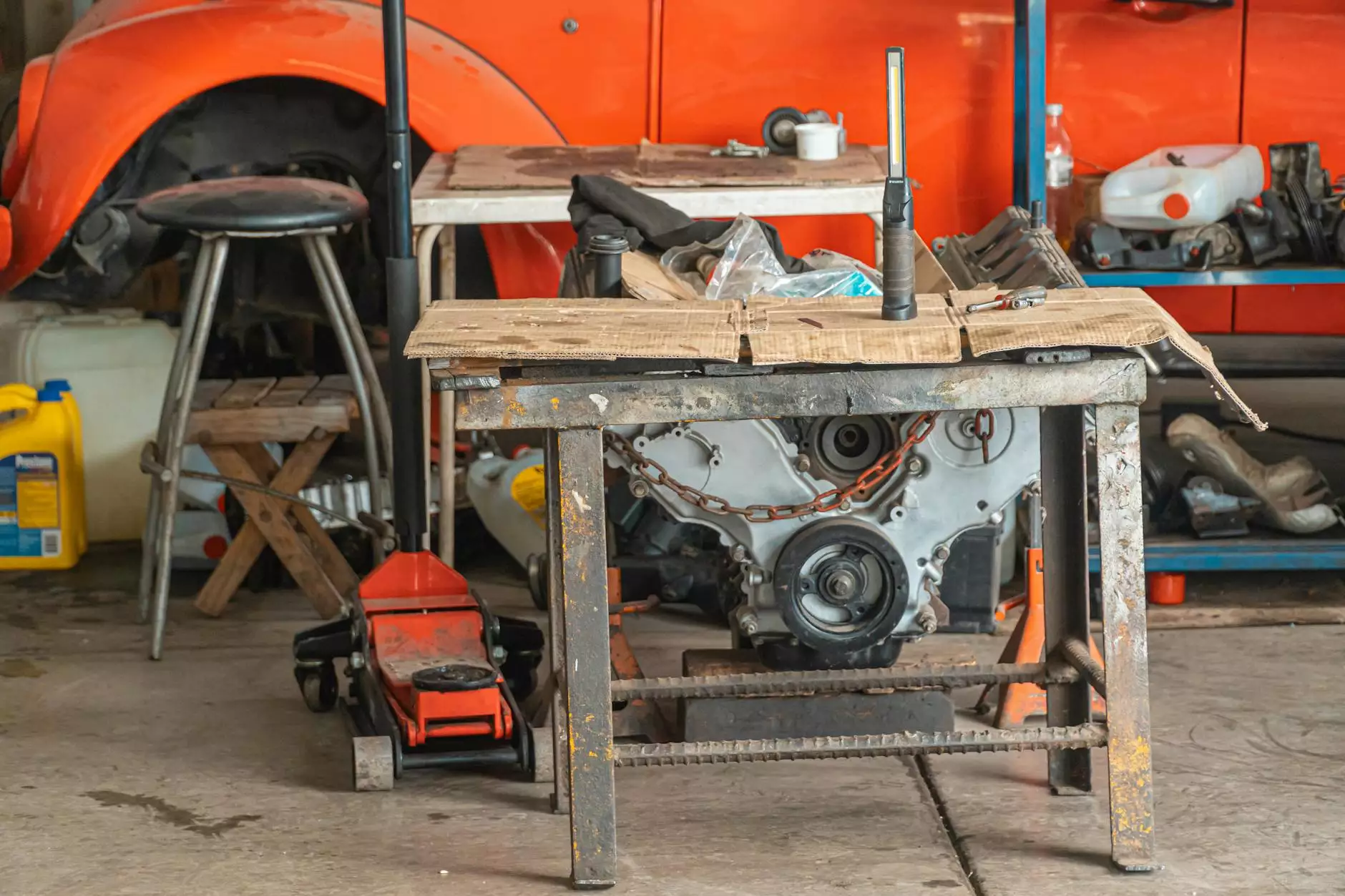Understanding the Role of a CNC Machining Parts Supplier in Modern Manufacturing

In today's fast-paced industrial landscape, the demand for precision-engineered components has skyrocketed. As a result, the role of a CNC machining parts supplier has become pivotal. These suppliers provide essential parts and services that adhere to the highest standards of quality and innovation. This article delves deep into what CNC machining entails, the advantages it brings to manufacturing businesses, and how a reliable supplier can help elevate your company to new heights.
What is CNC Machining?
CNC machining, or Computer Numerical Control machining, is a manufacturing process that utilizes computer software to control machine tools. This technology is employed to produce intricate parts and components with impressive precision and consistency. The main advantage of CNC machining lies in its ability to automate tasks such as drilling, milling, and turning, which optimizes the manufacturing process in terms of speed and accuracy.
The Importance of CNC Machining Parts Suppliers
A CNC machining parts supplier plays a crucial role in providing manufacturers with the components necessary for their products. The importance of such suppliers can be grouped into several categories:
- Quality Assurance: Suppliers ensure that the machining parts meet specific quality standards, which translates to better overall product reliability.
- Cost Efficiency: By sourcing parts from a qualified supplier, manufacturers can minimize waste and reduce production costs.
- Time Savings: A reputable CNC machining parts supplier often has ready-to-ship inventories, allowing manufacturers to avoid delays in production.
- Expertise and Guidance: Suppliers typically possess extensive knowledge in CNC machining processes, offering valuable support and recommendations.
Key Benefits of Partnering with a CNC Machining Parts Supplier
Choosing the right CNC machining parts supplier can have a significant impact on your manufacturing operations. Here are several key benefits of forming a partnership with a reputable supplier:
1. Access to Cutting-Edge Technology
Leading suppliers invest in the latest CNC technology and machinery, which complements your manufacturing processes. By sourcing parts from them, you gain access to advanced capabilities, ensuring you remain competitive in the market.
2. Custom Solutions Tailored to Your Needs
Many CNC machining parts suppliers offer custom manufacturing solutions. Whether you require unique dimensions, specialized materials, or intricate designs, a skilled supplier can create components tailored specifically to your specifications.
3. Scalable Production
As your company grows, your production needs may change. A reliable CNC machining parts supplier can easily scale their operations to meet increasing demands, enabling you to focus on expanding your business without worrying about supply chain disruptions.
4. Enhanced Product Lifecycle Management
Your relationship with a supplier can improve your product lifecycle management. With quality parts delivered consistently, you can assure your clients of dependable performance, reinforcing your brand's reputation in the market.
How to Choose the Right CNC Machining Parts Supplier
Selecting the right CNC machining parts supplier requires careful consideration of various factors. To help guide your decision-making process, consider the following:
- Industry Experience: Look for suppliers with substantial experience in your specific industry. Their knowledge of the unique challenges you face will be invaluable.
- Quality Certifications: Verify that the supplier adheres to international quality standards, such as ISO 9001, which ensures their processes meet rigorous quality management requirements.
- Technical Capabilities: Assess the supplier’s machinery and technology to ensure they can accommodate your production needs, including precision, volume, and material specifications.
- Customer Testimonials: Seek out feedback from existing clients. Positive testimonials and case studies can provide insight into the supplier's reliability and performance.
The Process of CNC Machining
The CNC machining process consists of several distinct stages, each critical to the successful outcome of the final product:
1. Design Phase
The journey begins with a digital design, often generated using CAD (Computer-Aided Design) software. This digital blueprint serves as a precise guide for the CNC machine.
2. Programming
Once the design is finalized, it is converted into a CNC program. This code directs the machine on how to execute the machining processes, including movements, speeds, and tool changes.
3. Machining
During this phase, the CNC machine engages with the raw material to create the desired shape and features based on the programmed instructions. This encompasses a variety of techniques, including milling, turning, and drilling.
4. Quality Inspection
Quality assurance checks are crucial throughout the manufacturing process. Suppliers implement detailed inspection protocols to ensure that every part meets the required specifications.
5. Delivery
After passing quality inspections, the parts are packaged and delivered to the manufacturer. Effective logistical processes ensure timely receipt of components, minimizing downtime.
Applications of CNC Machined Parts
CNC machined parts are integral across various industries. Some notable applications include:
- Aerospace: Components require precision and lightweight materials to maintain safety and efficiency.
- Automotive: From engine parts to structural components, the automotive industry relies on CNC machining for durability and performance.
- Medical Devices: High precision and biocompatibility are mandatory in the production of surgical tools and medical implants.
- Electronics: Machined parts play a vital role in housing and components of electronic devices, emphasizing the need for accuracy.
The Future of CNC Machining
The future of CNC machining is promising, influenced by continuous advancements in technology. Innovations such as artificial intelligence, machine learning, and improved software are set to reshape the landscape of manufacturing. Furthermore, the growing emphasis on sustainability and eco-friendly practices is pushing suppliers to adopt greener methods of production and material utilization.
1. Automation and Industry 4.0
The integration of automation and Industry 4.0 technologies will revolutionize CNC machining. By utilizing IoT (Internet of Things) devices, manufacturers can monitor production processes in real time, leading to enhanced efficiency and reduced costs.
2. Advanced Materials
As technology progresses, new materials are being developed that offer superior performance, such as lightweight alloys and composite materials. A skilled CNC machining parts supplier will stay at the forefront of these developments, providing clients with innovative solutions.
3. Customization on Demand
The ability to customize parts on demand will become increasingly prevalent. With capabilities like 3D printing being integrated into CNC machining processes, suppliers can deliver unique components tailored to specific customer requirements with unprecedented speed.
Conclusion
In summary, the significance of a reliable CNC machining parts supplier in modern manufacturing cannot be overstated. These suppliers contribute not only high-quality components but also offer the innovation and support necessary to fuel industry advancement. By understanding the complexities of CNC machining and recognizing the benefits of partnering with a reputable supplier, manufacturers can improve their productivity and ensure the success of their products in a competitive market.
For companies looking to enhance their manufacturing processes, collaborating with a dependable supplier like Deep Mould can make all the difference. Their commitment to quality, expertise in metal fabrication, and advanced CNC machining capabilities position them as a trusted partner in your quest for excellence.









